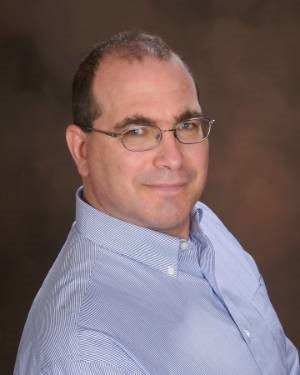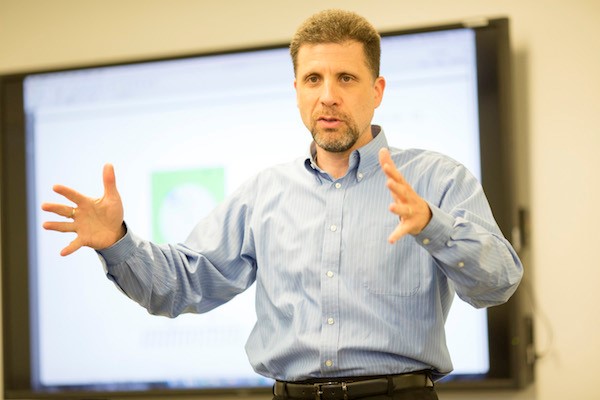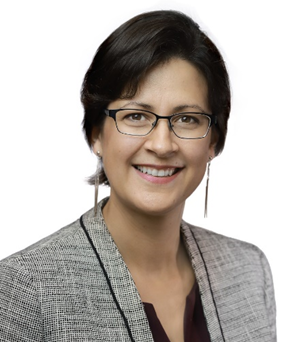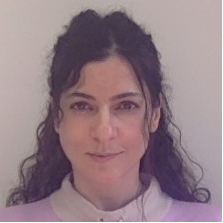There are four special sessions for MECC 2021:
Industry-Led Research Roadmap Panel on Control Engineering in the Age of AI, 12:55-14:00 PM Monday, Oct. 25, 2021.
More details here.
The Impact of Inclusivity on Innovation, 4:05PM – 5:00 PM Monday, Oct. 25, 2021.
More details here.
An Overview of Modeling, Estimation, and Control Funding Opportunities at NSF, 4:05PM – 5:00 PM Tuesday, Oct. 26, 2021.
More details here.
-
Panelists:
Eyad Abed, ENG/ECCS
Jordan Berg, ENG/CMMI
Harry Dankowicz, ENG/CMMI
Irina Dolinskaya, ENG/CMMI
Eva Kanso, ENG/CMMI
Eduardo Misawa, OD
 Eyad Abed has been on the faculty of the Department of Electrical and Computer Engineering at
the University of Maryland, College Park since 1983, where he is a Professor. He is also currently an Expert in the Energy, Power,
Control and Networks Program within the ECCS Division at NSF, where he also served as a Program Director during 2014-2018. He served
as Director of the Institute for Systems Research at the University of Maryland during 2002-2009. He received the S.B. degree from MIT
in 1979, and the M.S. and Ph.D. degrees in 1981 and 1982, respectively, from U.C. Berkeley, all in Electrical Engineering. Dr.
Abed’s research interests include system and control theory, nonlinear dynamics, electric power systems, networked systems and
applications, and aerospace systems. He is a Fellow of the IEEE and a recipient of several awards, including the Presidential
Young Investigator Award from NSF, the Alan Berman Research Publication Award, the O. Hugo Schuck Best Paper Award, and several
awards and recognitions from the University of Maryland for his teaching, research and service. His service roles include
participation on several editorial boards, serving as a member of the IEEE-USA R&D Policy Committee, and membership on the Local
Organizing Committee of the 2021 IEEE Power Engineering Society General Meeting.
He also served as Vice President for Financial Activities of the IEEE Control Systems Society during 2007-2009.
Eyad Abed has been on the faculty of the Department of Electrical and Computer Engineering at
the University of Maryland, College Park since 1983, where he is a Professor. He is also currently an Expert in the Energy, Power,
Control and Networks Program within the ECCS Division at NSF, where he also served as a Program Director during 2014-2018. He served
as Director of the Institute for Systems Research at the University of Maryland during 2002-2009. He received the S.B. degree from MIT
in 1979, and the M.S. and Ph.D. degrees in 1981 and 1982, respectively, from U.C. Berkeley, all in Electrical Engineering. Dr.
Abed’s research interests include system and control theory, nonlinear dynamics, electric power systems, networked systems and
applications, and aerospace systems. He is a Fellow of the IEEE and a recipient of several awards, including the Presidential
Young Investigator Award from NSF, the Alan Berman Research Publication Award, the O. Hugo Schuck Best Paper Award, and several
awards and recognitions from the University of Maryland for his teaching, research and service. His service roles include
participation on several editorial boards, serving as a member of the IEEE-USA R&D Policy Committee, and membership on the Local
Organizing Committee of the 2021 IEEE Power Engineering Society General Meeting.
He also served as Vice President for Financial Activities of the IEEE Control Systems Society during 2007-2009.
 Jordan Berg is Program Director in the Division of Civil, Mechanical, and Manufacturing Innovation (CMMI), in the Engineering Directorate (ENG) of the US National Science Foundation (NSF). He is Emeritus Professor of Mechanical Engineering at Texas Tech University. His research interests are in mechatronics, nonlinear control, and robotics. He received B.S.E. and M.S.E. degrees in Mechanical and Aerospace Engineering from Princeton University in 1981 and 1984, respectively. For several years he was an Attitude Control Analyst with RCA Astro-Electronics in East Windsor, NJ. He received a Ph.D. in Mechanical Engineering and an M.S. in Mathematics from Drexel University in 1992. He was a postdoctoral researcher at USAF Wright Laboratories in Dayton, OH, and at the Institute for Mathematics and its Applications in Minneapolis, MN. He has held numerous leadership positions, including Associate Editor of the ASME/IEEE Transactions on Mechatronics, the ASME Journal of Dynamic Systems, Measurement, and Control, and the IEEE Transactions on Automatic Control. He was Program Chair of the 2014 ASME Dynamic Systems and Control Conference, General Chair of the 2016 IEEE International Conference on Advanced Intelligent Mechatronics, and General Chair of the 2018 American Control Conference. He is a member of the Executive Committee of the ASME Dynamic Systems and Control Division. In 2008 he spent seven months in Sri Lanka as a Fulbright Scholar. He was selected a Fellow of the ASME in 2011. He arrived at NSF as an IPA rotator in May, 2014, and became a member of the permanent NSF staff in September 2018. .
Jordan Berg is Program Director in the Division of Civil, Mechanical, and Manufacturing Innovation (CMMI), in the Engineering Directorate (ENG) of the US National Science Foundation (NSF). He is Emeritus Professor of Mechanical Engineering at Texas Tech University. His research interests are in mechatronics, nonlinear control, and robotics. He received B.S.E. and M.S.E. degrees in Mechanical and Aerospace Engineering from Princeton University in 1981 and 1984, respectively. For several years he was an Attitude Control Analyst with RCA Astro-Electronics in East Windsor, NJ. He received a Ph.D. in Mechanical Engineering and an M.S. in Mathematics from Drexel University in 1992. He was a postdoctoral researcher at USAF Wright Laboratories in Dayton, OH, and at the Institute for Mathematics and its Applications in Minneapolis, MN. He has held numerous leadership positions, including Associate Editor of the ASME/IEEE Transactions on Mechatronics, the ASME Journal of Dynamic Systems, Measurement, and Control, and the IEEE Transactions on Automatic Control. He was Program Chair of the 2014 ASME Dynamic Systems and Control Conference, General Chair of the 2016 IEEE International Conference on Advanced Intelligent Mechatronics, and General Chair of the 2018 American Control Conference. He is a member of the Executive Committee of the ASME Dynamic Systems and Control Division. In 2008 he spent seven months in Sri Lanka as a Fulbright Scholar. He was selected a Fellow of the ASME in 2011. He arrived at NSF as an IPA rotator in May, 2014, and became a member of the permanent NSF staff in September 2018. .
 Harry Dankowicz is Professor of Mechanical Science and Engineering in The Grainger College of Engineering at the University of Illinois at Urbana-Champaign. He graduated from KTH Royal Institute of Technology in Stockholm, Sweden, with an M.Sc. in Engineering Physics in 1991 and, subsequently, from Cornell University with a Ph.D. in Theoretical and Applied Mechanics in 1995. Following a post-doctoral and research associate appointment at KTH between 1995 and 1999, he joined the Department of Engineering Science and Mechanics at Virginia Polytechnic Institute and State University, where he remained until 2005. Between 2016 and 2021, he served as Associate Dean for Graduate, Professional and Online Programs in The Grainger College of Engineering. Since May 2021, he is Program Director for the Dynamics, Control and System Diagnostics Program in the Division of Civil, Mechanical, and Manufacturing Innovation at the National Science Foundation. Prof. Dankowicz is a recipient of several prestigious faculty career awards, including a Junior Investigator Grant from the Swedish Foundation for Strategic Research, a CAREER award from the US National Science Foundation, a PECASE award from the US National Science Foundation, and the Fred Merryfield Design Award and Archie Higdon Distinguished Educator Award from the ASEE. Prof. Dankowicz conducts dynamical systems research at the intersection of engineering, math and physics. This work involves studying a wide range of complex systems that are governed by differential equations and learning the behavior of those systems through theory and experiments. His research efforts further seek to make original and substantial contributions to the development and design of existing or novel devices or methodologies that capitalize on system nonlinearities for improved system understanding and performance.
Harry Dankowicz is Professor of Mechanical Science and Engineering in The Grainger College of Engineering at the University of Illinois at Urbana-Champaign. He graduated from KTH Royal Institute of Technology in Stockholm, Sweden, with an M.Sc. in Engineering Physics in 1991 and, subsequently, from Cornell University with a Ph.D. in Theoretical and Applied Mechanics in 1995. Following a post-doctoral and research associate appointment at KTH between 1995 and 1999, he joined the Department of Engineering Science and Mechanics at Virginia Polytechnic Institute and State University, where he remained until 2005. Between 2016 and 2021, he served as Associate Dean for Graduate, Professional and Online Programs in The Grainger College of Engineering. Since May 2021, he is Program Director for the Dynamics, Control and System Diagnostics Program in the Division of Civil, Mechanical, and Manufacturing Innovation at the National Science Foundation. Prof. Dankowicz is a recipient of several prestigious faculty career awards, including a Junior Investigator Grant from the Swedish Foundation for Strategic Research, a CAREER award from the US National Science Foundation, a PECASE award from the US National Science Foundation, and the Fred Merryfield Design Award and Archie Higdon Distinguished Educator Award from the ASEE. Prof. Dankowicz conducts dynamical systems research at the intersection of engineering, math and physics. This work involves studying a wide range of complex systems that are governed by differential equations and learning the behavior of those systems through theory and experiments. His research efforts further seek to make original and substantial contributions to the development and design of existing or novel devices or methodologies that capitalize on system nonlinearities for improved system understanding and performance.
 Irina Dolinskaya is a Program Director at the National Science Foundation (NSF) in the Division of Civil, Mechanical & Manufacturing Innovation (CMMI). Dr. Dolinskaya services Dynamics, Control and Systems Diagnostics (DCSD) and Foundational Research in Robotics (Robotics) programs, as well as National Robotics Initiative (NRI 3.0) and Navigating the New Arctic (NNA) NSF’s 10 Big Ideas. Prior to joining NSF, Irina Dolinskaya was a faculty in the Industrial Engineering and Management Sciences department at Northwestern University. She obtained M.S. and Ph.D. degrees in Industrial and Operations Engineering from the University of Michigan, and B.S. degree in Industrial Engineering from the University of Florida. Dr. Irina Dolinskaya’s research is in the field of optimization, transportation science and logistics with focus on adaptive modeling and solution approaches to integrate dynamic real-time information. Her current primary applications are in humanitarian logistics, optimal vessel performance, and electric vehicle routing. Irina Dolinskaya is the winner of the INFORMS Transportation Science & Logistics Society Dissertation Prize and the 2008 recipient of the Bonder Scholarship for Applied Operations Research in Military Applications.
Irina Dolinskaya is a Program Director at the National Science Foundation (NSF) in the Division of Civil, Mechanical & Manufacturing Innovation (CMMI). Dr. Dolinskaya services Dynamics, Control and Systems Diagnostics (DCSD) and Foundational Research in Robotics (Robotics) programs, as well as National Robotics Initiative (NRI 3.0) and Navigating the New Arctic (NNA) NSF’s 10 Big Ideas. Prior to joining NSF, Irina Dolinskaya was a faculty in the Industrial Engineering and Management Sciences department at Northwestern University. She obtained M.S. and Ph.D. degrees in Industrial and Operations Engineering from the University of Michigan, and B.S. degree in Industrial Engineering from the University of Florida. Dr. Irina Dolinskaya’s research is in the field of optimization, transportation science and logistics with focus on adaptive modeling and solution approaches to integrate dynamic real-time information. Her current primary applications are in humanitarian logistics, optimal vessel performance, and electric vehicle routing. Irina Dolinskaya is the winner of the INFORMS Transportation Science & Logistics Society Dissertation Prize and the 2008 recipient of the Bonder Scholarship for Applied Operations Research in Military Applications.
 Eva Kanso joined the Division of Civil, Mechanical & Manufacturing Innovation (CMMI) of NSF in Fall 2021 as an IPA rotator from the University of Southern California, where she is a professor and the Z.H. Kaprielian Fellow in Aerospace and Mechanical Engineering. Prior to joining USC in 2005, Kanso held a two-year postdoctoral position in Computing and Mathematical Sciences at Caltech. She received a Ph.D. degree in 2003 and an M.S. degree in 1999 in Mechanical Engineering, as well as an M.A. degree in 2002 in Mathematics, all from the University of California at Berkeley. She obtained her Bachelor of Engineering degree from the American University of Beirut with distinction. Kanso held visiting positions at Princeton University in 2004, the Laboratoire LadHyX at the Ecole Polytechnique in 2015, the Courant Institute of Mathematical Sciences in 2016-2017, the Simons Foundation in 2016-2017, and the Ecole Supérieure de Physique et de Chimie Industrielles in 2021. Her research interests concern fundamental problems in the biophysics of cellular and subcellular processes and the physics of animal behavior, both at the individual and collection levels. A central theme in her work is the role of the mechanical environment, specifically the fluid medium and fluid-structure interactions, in shaping and driving biological functions.
Eva Kanso joined the Division of Civil, Mechanical & Manufacturing Innovation (CMMI) of NSF in Fall 2021 as an IPA rotator from the University of Southern California, where she is a professor and the Z.H. Kaprielian Fellow in Aerospace and Mechanical Engineering. Prior to joining USC in 2005, Kanso held a two-year postdoctoral position in Computing and Mathematical Sciences at Caltech. She received a Ph.D. degree in 2003 and an M.S. degree in 1999 in Mechanical Engineering, as well as an M.A. degree in 2002 in Mathematics, all from the University of California at Berkeley. She obtained her Bachelor of Engineering degree from the American University of Beirut with distinction. Kanso held visiting positions at Princeton University in 2004, the Laboratoire LadHyX at the Ecole Polytechnique in 2015, the Courant Institute of Mathematical Sciences in 2016-2017, the Simons Foundation in 2016-2017, and the Ecole Supérieure de Physique et de Chimie Industrielles in 2021. Her research interests concern fundamental problems in the biophysics of cellular and subcellular processes and the physics of animal behavior, both at the individual and collection levels. A central theme in her work is the role of the mechanical environment, specifically the fluid medium and fluid-structure interactions, in shaping and driving biological functions.
 Eduardo Misawa is a Senior Advisor in the Office of the Director at the National Science Foundation (NSF). He has a B.Sc. and M.Sc. degrees from University of São Paulo (Brazil) and Ph.D. degree from the Massachusetts Institute of Technology (MIT), all in Mechanical Engineering with concentration in Dynamics and Control. He was a Program Director at NSF managing the Engineering Research Centers (ERC) and Network for Computational Nanotechnology (NCN) programs. He also served as acting Deputy Division Director in several divisions at NSF, acting deputy office director, senior advisor in the Directorate for Mathematical and Physical Sciences, and program director (on detail) in the Division of Graduate Education. His research interests include broad areas in modeling, estimation and control for nonlinear systems, emergent behavior in complex systems, computational and data science, and science and technology policy. He held several leadership positions in the ASME Dynamic Systems and Control Division, IEEE Control System Society, the American Automatic Control Council, and general chair (and program chair, etc.) of past ACCs and ASME Dynamic Systems and Control Conferences. He is a Fellow of ASME, and a senior member of IEEE.
Eduardo Misawa is a Senior Advisor in the Office of the Director at the National Science Foundation (NSF). He has a B.Sc. and M.Sc. degrees from University of São Paulo (Brazil) and Ph.D. degree from the Massachusetts Institute of Technology (MIT), all in Mechanical Engineering with concentration in Dynamics and Control. He was a Program Director at NSF managing the Engineering Research Centers (ERC) and Network for Computational Nanotechnology (NCN) programs. He also served as acting Deputy Division Director in several divisions at NSF, acting deputy office director, senior advisor in the Directorate for Mathematical and Physical Sciences, and program director (on detail) in the Division of Graduate Education. His research interests include broad areas in modeling, estimation and control for nonlinear systems, emergent behavior in complex systems, computational and data science, and science and technology policy. He held several leadership positions in the ASME Dynamic Systems and Control Division, IEEE Control System Society, the American Automatic Control Council, and general chair (and program chair, etc.) of past ACCs and ASME Dynamic Systems and Control Conferences. He is a Fellow of ASME, and a senior member of IEEE.
Underrepresented Stories in Controls & Robotics Industry, 12:55-14:00 PM Wednesday, Oct. 27, 2021.
More details here.
